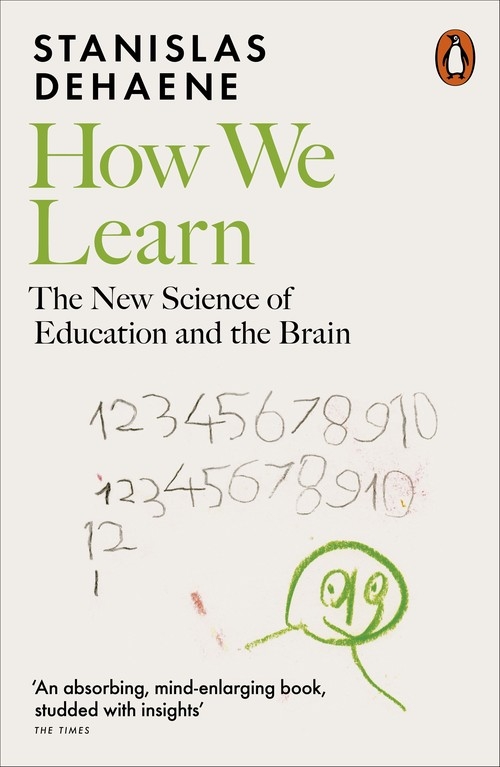How We Learn
The New Science of Education and the Brain
Penguin Books

Wysyłka:
Niedostępna
Sugerowana cena
Nasza cena
55,89 PLN
Oszczędzasz 10%
Najniższa cena w ciągu ostatnich 30 dni: 0,00 zł
Humanity's greatest feat is our incredible ability to learn. Even in their first year, infants acquire language, visual and social knowledge at a rate that surpasses the best supercomputers. But how, exactly, do our brains learn?
In How We Learn, leading neuroscientist Stanislas Dehaene delves into the psychological, neuronal, synaptic and molecular mechanisms of learning. Drawing on case studies of children who learned despite huge difficulty and trauma, he explains why youth is such a sensitive period, during which brain plasticity is maximal, but also assures us that our abilities continue into adulthood. We can all enhance our learning and memory at any age and 'learn to learn' by taking maximal advantage of the four pillars of the brain's learning algorithm: attention, active engagement, error feedback and consolidation.
The human brain is an extraordinary machine. Its ability to process information and adapt to circumstances by reprogramming itself is unparalleled, and it remains the best source of inspiration for recent developments in artificial intelligence. How We Learn finds the boundary of computer science, neurobiology, cognitive psychology and education to explain how learning really works and how to make the best use of the brain's learning algorithms - and even improve them - in our schools and universities as well as in everyday life.
Szczegóły
Podtytuł: The New Science of Education and the Brain
Autor: Stanislas Dehaene
Wydawnictwo: Penguin Books
ISBN: 9780141989303
Języki: angielski
Rok wydania: 2021
Ilość stron: 352
Format: 13.0x20.0cm
Oprawa: Miękka
Recenzje
Klienci, którzy kupili oglądany produkt kupili także:
Granice interpretacji
Copernicus Center Press
Lew w salonie. Jak koty oswoiły człowieka i przejęły władzę nad światem
Copernicus Center Press
Co to znaczy uczyć się? Dlaczego mózg uczy się lepiej niż komputer
Copernicus Center Press
Euklides Elementy
Teoria proporcji i podobieństwa
Teoria proporcji i podobieństwa
Copernicus Center Press
Przyczyny i skutki
Copernicus Center Press






